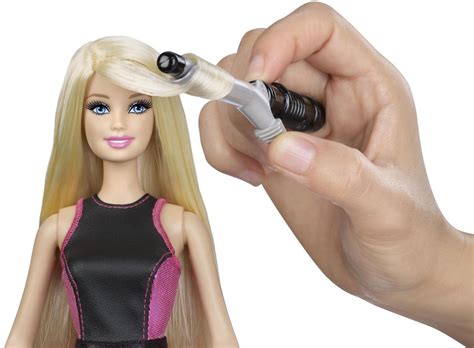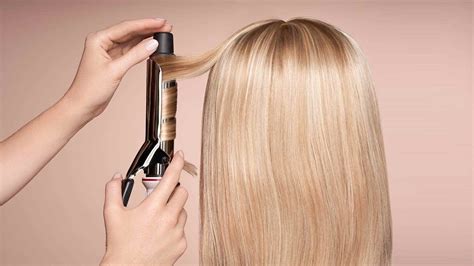Curling irons are an essential tool for creating beautiful, voluminous curls. With so many different types available, it can be difficult to know which one is right for you. In this comprehensive guide, we’ll explore the various types of curling irons, their features, and their pros and cons to help you choose the perfect curling iron for your hair type and styling needs.

Types of Curling Irons
Curling irons come in a wide range of sizes, shapes, and materials. Here are the most popular types:
Traditional Curling Irons
- Barrel Size: 1/2 to 1 1/2 inches
- Best For: All hair types
- Benefits: Versatile, creates tight to loose curls
- Cons: Can create kinks or hair damage if not used properly
Wand Curling Irons
- Barrel Size: 1/2 to 2 inches
- Best For: Long, thick hair
- Benefits: Creates smooth, voluminous curls
- Cons: Requires more skill to use
Clip Curling Irons
- Barrel Size: 1 to 2 inches
- Best For: Fine, thin hair
- Benefits: Easy to use, creates defined curls
- Cons: Can cause hair breakage if not used properly
Interchangeable Curling Irons
- Barrel Size: Varies depending on the attachment
- Best For: All hair types
- Benefits: Versatile, provides a range of styling options
- Cons: Can be expensive
Triple Barrel Curling Irons
- Barrel Size: 1/2 to 1 inch
- Best For: Short, thin hair
- Benefits: Creates beachy waves
- Cons: Not suitable for long or thick hair
Features to Consider
When choosing a curling iron, consider the following features:
Barrel Size
The barrel size determines the size of the curls you can create. Smaller barrels create tighter curls, while larger barrels create looser curls.
Material
Curling irons are made from a variety of materials, including ceramic, titanium, and tourmaline. Ceramic barrels are gentle on hair, titanium barrels heat up quickly, and tourmaline barrels emit negative ions to reduce frizz.
Heat Settings
Most curling irons offer multiple heat settings to accommodate different hair types. Fine hair should use lower heat settings, while thick hair can withstand higher temperatures.
Attachments
Some curling irons come with interchangeable attachments, allowing you to create different types of curls with one tool.
Cord Length
A long cord provides more flexibility while styling. Look for a cord that is at least 6 feet long.
Pros and Cons of Different Curling Irons
| Type | Pros | Cons |
|---|---|---|
| Traditional | Versatile, creates tight to loose curls | Can create kinks or hair damage |
| Wand | Creates smooth, voluminous curls | Requires more skill to use |
| Clip | Easy to use, creates defined curls | Can cause hair breakage |
| Interchangeable | Versatile, provides a range of styling options | Can be expensive |
| Triple Barrel | Creates beachy waves | Not suitable for long or thick hair |
Common Mistakes to Avoid
Avoid these common mistakes when using a curling iron:
- Using too high of a heat setting
- Holding the curling iron in one place for too long
- Overlapping the curls
- Not using a heat protectant spray
Tips for Perfect Curls
- Prepare your hair with a heat protectant spray.
- Section your hair into small pieces.
- Use a curling iron that is the right size for your hair type and the style you want to create.
- Hold the curling iron parallel to the floor.
- Wrap the hair around the barrel and hold for 10-15 seconds.
- Release the hair and let it cool.
Frequently Asked Questions
What type of curling iron is best for beginners?
Traditional curling irons are the easiest to use for beginners.
How often should I curl my hair?
To avoid heat damage, curl your hair no more than twice a week.
Can I use a curling iron on wet hair?
Never use a curling iron on wet hair. It can cause severe damage.
How long do curls last?
Curls can last for several days, depending on your hair type and how you style them.
Can I sleep with my hair curled?
Avoid sleeping with your hair curled. It can cause breakage and tangles.
By following these tips, you can create beautiful, voluminous curls that last for days. Experiment with different types of curling irons and techniques to find what works best for your hair.
Additional Resources:
- American Academy of Dermatology: Hair Care Tips
- Good Housekeeping: The Best Curling Irons for Every Hair Type
- Prevention: How to Choose the Right Curling Iron for Your Hair
